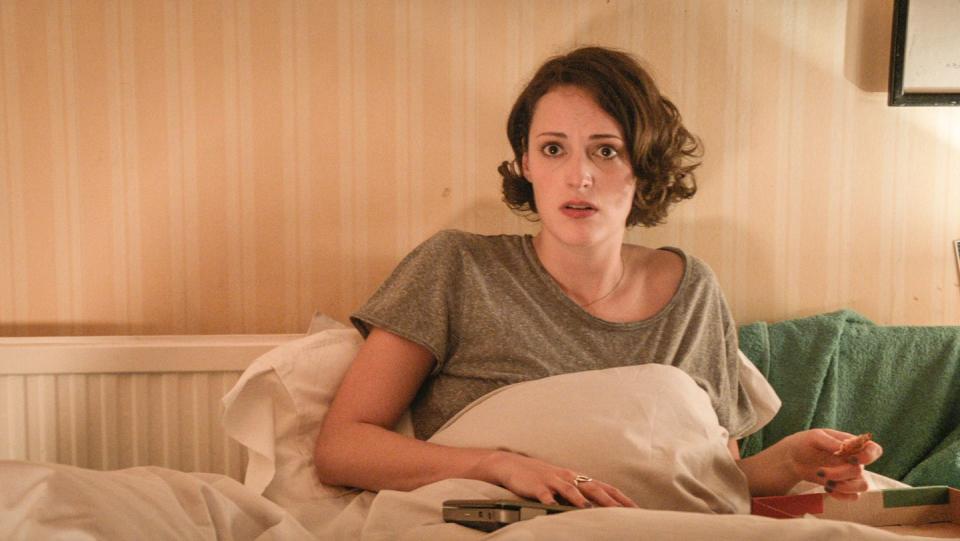What Fleabag gets right about mental health that a hundred serious dramas don't

Note: contains spoilers for Fleabag seasons one and two.
Fans of Fleabag, the BBC Three comedy-drama created and written by Phoebe Waller-Bridge, who also stars as the eponymous character, were recently treated to a series first.
Fleabag goes to a long-overdue counselling session – it was a birthday present from her dad, which in itself tells you a lot about the tone of the show – conducted by a no-nonsense therapist played by the exceptional Fiona Shaw.
The exchange begins with Shaw's character moisturising her dry forearms and concludes with a rapid, witty back-and-forth dialogue between the pair. The unnamed counsellor tells Fleabag that she (Fleabag) already knows what she is going to do about Andrew Scott’s sexy priest, while Fleabag asserts that she absolutely does not – though, of course, she does.
You don't need to be a therapist to call that one.

The session is bookended by two funny moments, Waller-Bridge employing playful devices which make you chuckle because they’re both highly amusing and entirely unexpected. Fleabag’s ability to elicit both amusement and puzzlement simultaneously is a joy to watch. You always feel slightly off-balance, like you're never fully in control, which works so well because almost every element of Fleabag's life is mired in chaos.
Fleabag is grieving. She lost her mother to breast cancer and her best friend Boo (Jenny Rainsford) accidentally killed herself after discovering that her boyfriend had been unfaithful. We later find out that the person he was unfaithful with was Fleabag.
The latter in particular has become her cross to bear. She isn't just heartbroken, she feels guilty, pointing the finger of blame directly at herself – and that overwhelming shame is a suffocating presence in her life destroying both her relationships and her sense of self.

Up until this point, Fleabag has been unwilling to confront her problems and even during her therapy session, she admits that she only turned up so she could exchange the voucher for money. She regularly plays the clown as a distraction technique, as well as seeking out sex as a way of deflecting from the "screaming void" inside her "empty heart".
And while we know that has always been a facet of this particular character – it's why so many people are drawn to her and feel a degree of kinship – it's really the only time Fleabag has vocalised her misery and it's incredibly powerful, a moment laden with painful truths.
"Just a girl with no friends and an empty heart... by your own description," says the therapist and Fleabag is floored. She's visibly devastated, because saying it aloud makes it real.

It almost takes your breath away, until you check yourself and remember that we’ve always known that her mental health is in tatters.
But before we have time to truly absorb what we've just watched, the conversation has moved on, Fleabag announces that she wants to "f**k a priest" and it's almost as if it never happened.
That is where this series (and so many other comedies) excel where 'serious' dramas don't. Unlike dramas, which deal in stern looks and wall-to-wall trauma, one of Fleabag's key objectives is to make you laugh, so when you're not laughing, you feel it all the more.
The juxtaposition between humour and despair makes those dark moments so much more arresting. They're stark and they're brazen, often appearing out of no where at lightning speed, clashing with the moments that land before and after, catching you off-guard –because we're laughing… Aren't we?
The way in which Waller-Bridge frames those moments is a testament to both her brilliance and the fluid nature of comedy, able to create moments that successfully tackle a subject as delicate as mental health, and stay with you long after.
Want up-to-the-minute entertainment news and features? Just hit 'Like' on our Digital Spy Facebook page and 'Follow' on our @digitalspy Instagram and Twitter account.
('You Might Also Like',)

 Yahoo News
Yahoo News 
